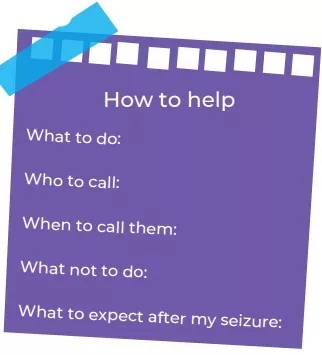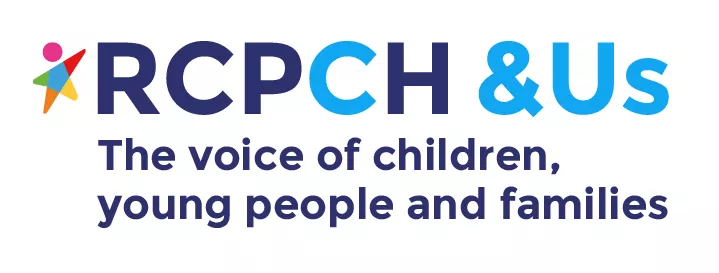Established in 2018, the Epilepsy12 Youth Advocates formed to support the Epilepsy12 national audit programme, bringing their voices, experiences, hopes and wishes to life through youth-led project work and advocacy.
The journey...
The Epilepsy12 Youth Advocates began with clinic chats in clinics across England, finding out what matters to children, young people and families to support their epilepsy care and experiences. You can read the results in their report Epilepsy12 &Us and as presented to the 2018 Epilepsy12 OPEN UK conference. In 2018 the group were the first ever winners of the HQIP Richard Driscoll Memorial Award for patient and public involvement.
The Advocates went on to develop their own resources for clinics to use, presented their project and learning to NHS England and other Medical Royal Colleges or NHS trusts, had their own sessions and chapters in each audit conference and report... and even went on to win more awards!
In 2020 the group were joint winners in the national HQIP Audit Heroes Awards in the National Volunteer of the Year category for their hard work with the Clinic Chat Check List project. They were also chosen as joint winners in the 2021 RCPH &Us Volunteer Awards for all their commitment to improving health service through volunteering. They also joined the 2021 Epilepsy12 OPEN UK Conference. Then in November 2022, they again won the Richard Driscoll Memorial Award!
As a youth advocate, I have been able to normalise epilepsy slightly more at a time where stigmas in illnesses are so important to break down
Support with worries and anxieties linked to epilepsy
Through the clinic chats, the Epilepsy12 Youth Advocates identified that children and young people wanted more support linked to their anxieties and worries about their epilepsy. In 2019, they developed a project to work with clinics to find out how they support patients and families, identify good practice and create actions for the future. The group presented their plans at the 2019 Epilepsy12 OPEN UK conference, with the 150+ attendees sharing their ideas to help develop the project.
...the Youth Advocates have visited six clinics virtually to support discussions around future plans whilst looking to find out what makes the “gold standard” in supporting patients’ worries and anxieties
The Youth Advocates then designed a clinic self-assessment tool, the Clinic Chat Check List. This helps paediatric epilepsy services think about their offer and to discuss as a team what they were doing well and identify ideas for change. In early 2020, eight clinics took part in the pilot programme, sharing their check lists with the Advocates to review and send their feedback. The young volunteers shared their learning and experiences at the 2020 Epilepsy12 OPEN UK conference, highlighting the early impact that COVID-19 had on their project and their plans for the coming year.
Towards the end of 2020 and into 2021, the Youth Advocates visited six of the clinics virtually to support discussions around future plans and looking to find out what makes the “gold standard” in supporting patients’ worries and anxieties. You can read their findings and what does make a gold standard service in the Epilepsy12 National Audit report 2021.
In 2021, the group continued to meet virtually, providing feedback to the clinics visited, writing their chapter for the national audit report and developing resources to support conversations in clinics about worries and anxieties. They also supported campaigns on social media, shared their learning at RCPCH Conference Online in June 2021 and continued to volunteer to support improvements in epilepsy care.
The Epilepsy12 Youth Advocates would like all clinics to have the chance to take part in the support with worries and anxieties project, and to undertake the self assessment.
Download the Clinic Chat Check List below
The importance of school care plans
One topic kept popping up for the Epilepsy12 Youth Advocates and from the audit data: school care plans. All the Advocates agreed that having good support at school, especially in your first year of having epilepsy, can make all the difference to your future. They were shocked to see that as reported in the Epilepsy12 national report on 2019-20 data only 32% of children and young people had an individual school healthcare plan in their first year.
We wanted to make a school care plan example, with all the areas that we think is important to think about and include. This will help children and young people to feel empowered and positive if school care plans are used and kept up to date.

Starting in November 2021, the Youth Advocates have been reviewing and discussing the importance of school care plans and how they can support the patient, family, teachers and friends to feel more confident about epilepsy experiences. Throughout the discussions, it was clear that school care plans need to be easy to use and include information about school, seizures, aspirations, mental health and more so they are holistic, relevant and useful for everyone.
The Youth Advocates wanted everyone to know just how useful a good care plan could be - for university, college, work or volunteering, being something that develops with the child or young person. Advocates shared their experiences about doing school or college assemblies to tell others about having epilepsy and what to do if someone has a seizure. For some this was a hugely empowering experience, for others they felt this disclosure of their condition would have been really intimidating: so please talk with your students or attendees before committing them to lead awareness raising sessions to others.
I did a PowerPoint for school and being open was something that gave me confidence In myself to be talk more about my epilepsy. It let people know what other people are going through and how to support them.
The Advocates thought it would be good to have different versions of an individual care plan available for different uses. For example, you might need a really complete plan with your medicine information, diagnosis and treatment plans for when you're are staying away for the night or if your epilepsy needs more support. It would be good to have a small card version with an easy to follow flowchart for friends and extended family. And a short but personal version that can be carried with you or given to people they see regularly.
The take home tips for a school care plan?
Keep it personal
Keep it relevant
Keep it visual
Keep it up to date
Keep it short but useful!
Don't forget to check out other care plan examples such as the ones from Epilepsy Action, Young Epilepsy and the RCPCH Epilepsy Passport.
Download the example care plan below
Guide to the Epilepsy12 audit for patients and parents
Each year, the College publishes a guide to its latest clinical audit report, working with the Youth Advocates who informed the guide for children and young people. (And for parents and carers!) You can read more and download the guide.
Keep checking this page for the latest updates on the project and email and_us@rcpch.ac.uk if you have any questions or would like to get involved.










